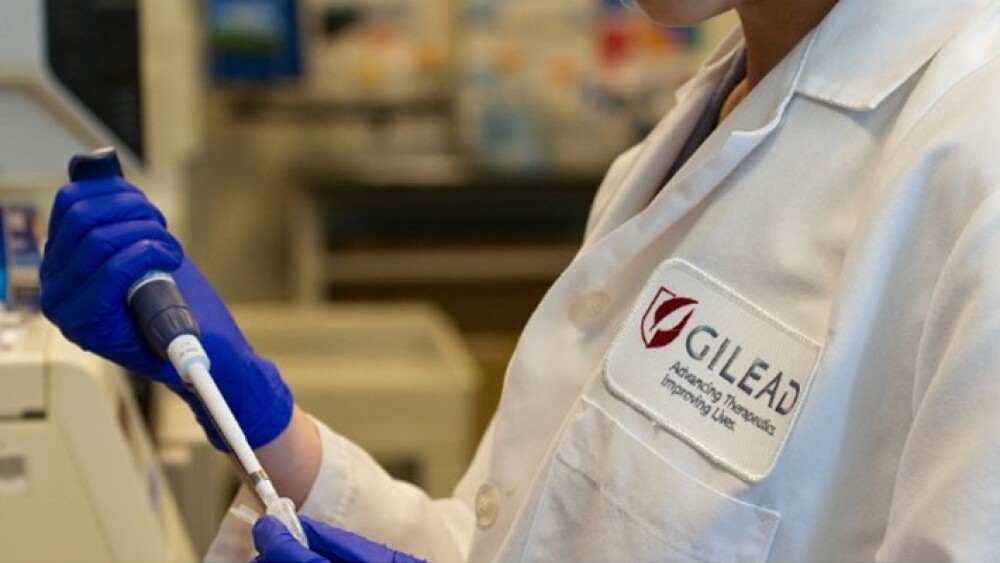July 19, 2017
By Alex Keown, BioSpace.com Breaking News Staff
FOSTER CITY, Calif. – Gilead Sciences ’s grip on the shrinking hepatitis C market grew stronger this week after the U.S. Food and Drug Administration (FDA) approved Vosevi, an oral medicine for the for the re-treatment of chronic HCV.
Shares of Gilead rose slightly on the news, which was announced Tuesday afternoon.
The FDA approved Vosevi, a combination of sofosbuvir, velpatasvir and voxilaprevir, based on the Phase III Polaris-1 and Polaris-4 trials.
Hepatitis C is a viral disease that causes inflammation of the liver that can lead to diminished liver function or liver failure. According to the U.S. Centers for Disease Control and Prevention, an estimated 2.7 to 3.9 million people in the United States have chronic HCV. There are at least six distinct HCV genotypes. Vosevi has been approved for the treatment of adult HCV patients with genotype 1, 2, 3, 4, 5 or 6 and were previously treated with a sofosbuvir-containing regimen without an NS5A inhibitor.
Gilead’s HCV treatments, including Harvoni and Sovaldi, have proven to be so effective that the HCV market has declined tremendously over the past few years. The approval of Vosevi is likely to further erode the space. Since 2013, Gilead has brought to market four HCV treatments, including three single-table regimens. To date, more than an estimated 1.4 million patients worldwide have been treated with sofosbuvir-based regimens, Gilead said.
“The evolution of Gilead’s portfolio of HCV single-tablet regimens has been driven by our commitment to address previously unmet needs and put the possibility of cure within reach for as many HCV patient populations as possible,” John Milligan, Gilead’s president and chief executive officer, said in a statement. “The approval of Vosevi completes our portfolio by fulfilling the unmet need for an effective regimen for patients who could not be cured, despite prior treatment with certain DAA (direct-acting antiviral) regimens.”
During clinical trials, patients treated with Vosevi for 12 weeks 96 percent of those dosed with Vosevi achieved the primary endpoint of SVR12, defined as maintaining undetectable viral load 12 weeks after completing therapy.
Ira Jacobson, chairman of the Department at Medicine at Mount Sinai Beth Israel in New York City, said DAA regimens have transformed HCV care and provided a cure for many patients. Jacobson, who was also one of the principal investigators of the Polaris trials, said during clinical studies Vosevi “resulted in high cure rates… of patients who were not previously cured with several widely-prescribed DAA regimens.”
Jacobson’s statement was supported by the FDA. When the agency announced it had approved Vosevi, Edward Cox, director of the Office of Antimicrobial Products in the FDA’s Center for Drug Evaluation and Research, said “direct-acting antiviral drugs prevent the virus from multiplying and often cure HCV.”
Gilead did not indicate what pricing for the treatment might be.
Gilead’s newly approved drug though does contain a black-box warning label regarding the risk of hepatitis B virus (HBV) reactivation in HCV/HBV coinfected patients. During clinical trials, the most common adverse events among patients taking Vosevi were headache, fatigue, diarrhea and nausea. Adverse events affected less than 10 percent of Vosevi patients, Gilead said.





